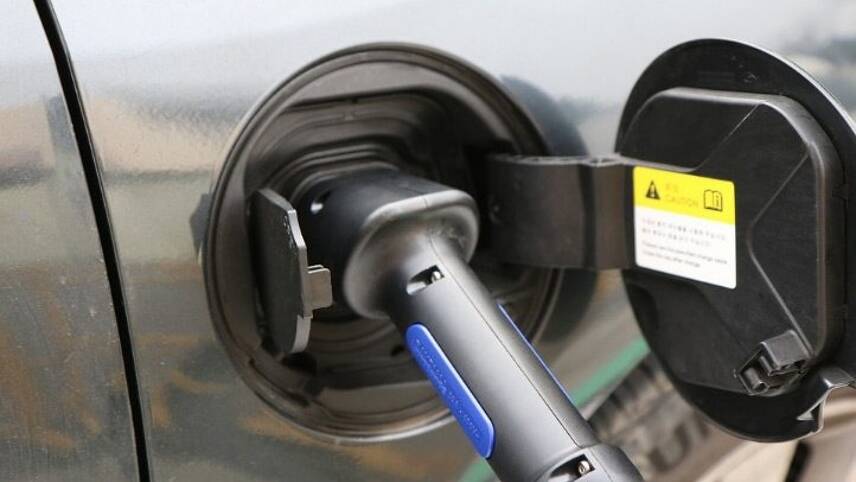Register for free and continue reading
Join our growing army of changemakers and get unlimited access to our premium content

The new tax criteria will also spur demand for plug-in hybrids
The BiK tax for EVs has been relieved for the next 12 months for businesses and will only increase to 1% in 2021, as the UK Government attempts to spur the uptake of low-polluting and low-emission vehicles on UK roads.
The tax relief applies to company cars and is a sharp drop in the 16% BiK rate that was present during the last tax year. In comparison, some conventional, polluting cars can have BiK rates of up to 37%.
Responding to the tax relief, Poppy Welch, head of Go Ultra Low said: “We expect that this company car benefit will encourage further EV options to be introduced to fleets, as companies work to pass on the tax savings to their employees. It will also add further momentum to the UK’s EV market, which grew an impressive 21% in 2019.”
The new tax criteria will also spur demand for plug-in hybrids. Under changes to the BiK tax, hybrids with a higher electric range will pay less tax.
Market growth
Transport it widely viewed as the problem point of national decarbonisation efforts. It overtook the power industry as the most carbon-intense sector in 2016 and saw its emissions rise by 2% last year, with the main source of emissions deriving from the use of petrol and diesel.
The Government’s response has been the Road to Zero transport strategy. However, this has been criticised by green groups and the Government’s own climate body for failing to confirm financial support to domestic and business customers seeking to purchase EVs after 2020, invest into EV charging infrastructure and associated power system upgrades or require automakers to set long-term climate targets.
However, EV registrations in the UK do continue to rise. Almost three times as many electric cars were registered in the UK this July than in July 2018. The data, recorded by the Society of Motor Manufacturers and Traders (SMMT), shows that registrations of fully electric vehicles (EVs) were up 158% year-on-year, from 880 in July 2018 to 2,271 in July 2018. Hybrid-electric vehicle registrations were also up by 34.2% within the same timeframe, while a whopping 331% increase in registrations was recorded for mild hybrid-electric vehicles with diesel capacity.
Plug-in hybrid electric vehicle (PHEV) registrations, however, were down 49.6% year-on-year. The decrease comes after the Department for Transport (DfT) altered its Plug-In Car Grant last Autumn, to reduce its grant for EV buyers by up to £1,000 per customer while removing some plug-in hybrid-electric models from the scheme altogether.
Commenting on the announcement, Octopus Electric Vehicles’ chief executive Fiona Howarth said: “In this year’s budget, the government cemented their support for EVs, with incentives and benefits in place until 2025; extending the extremely low Benefit-in-Kind rates, providing additional funding for the plug-in vehicle grants, home and workplace charging grants, and £500m for rapid charging investment.
“It’s a crucial step as we move towards what could be a 2032 ban on purchasing new petrol and diesel vehicles. The extension of lower Benefit-in-Kind rates will allow more people to access electric cars at great prices, accelerating the transition to clean transport.”
Despite the welcoming announcement, some are calling for Government action on investment into EV infrastructure. According to research, the UK lags behind other EU nations on charging infrastructure.
Only one-fifth of UK-based EV drivers have access to the fastest rate of home charging of 22kW or higher, compared with nearly 75% of German users, for example.
And, while the Faraday Institution plans to split a £55m funding pot between five UK-based research and development projects surrounding battery energy storage for EVs, policy gaps do exist in regards to the UK’s approach to electrifying transport.
In response, Kevin Brundish, chief executive of electric vehicle battery manufacturer AMTE Power said: “Whilst the company car tax reward will be pivotal in the fight against climate change, more government action is needed to realise the benefits, and this lies in further infrastructure investment.
“The UK has the knowledge and battery technology at home, but will need the equivalent of a staggering eight 15GWh gigafactories by 2040 if the country is to meet its Road to Zero targets.”
Matt Mace


Should we be encouraging "company cars"? Should we be encouraging private car ownership of any form?
Priority now should be on electrifying public transport through things like trolley buses (using overhead power), hybrid buses using batteries/fuel cells and clean burn engines (for the more remote routes), trams, electric tuk tuks, electric taxis (or at least maxi hybrid taxis) and distribution vehicles such as the post office vans, Amazon vans and the whole host of other delivery vehicles.
The current circumstances have proven technology is able to allow many many people to work from home successfully which has proven that many many people do not need to commute for hours to an office just to sit at a computer. It has proven that conferences can be virtual and even national governments can still function when everyone is remote. Now is the time to build on that and break our love affair with the private car and especially the "perk" that is the company car that never gets used for company purposes.